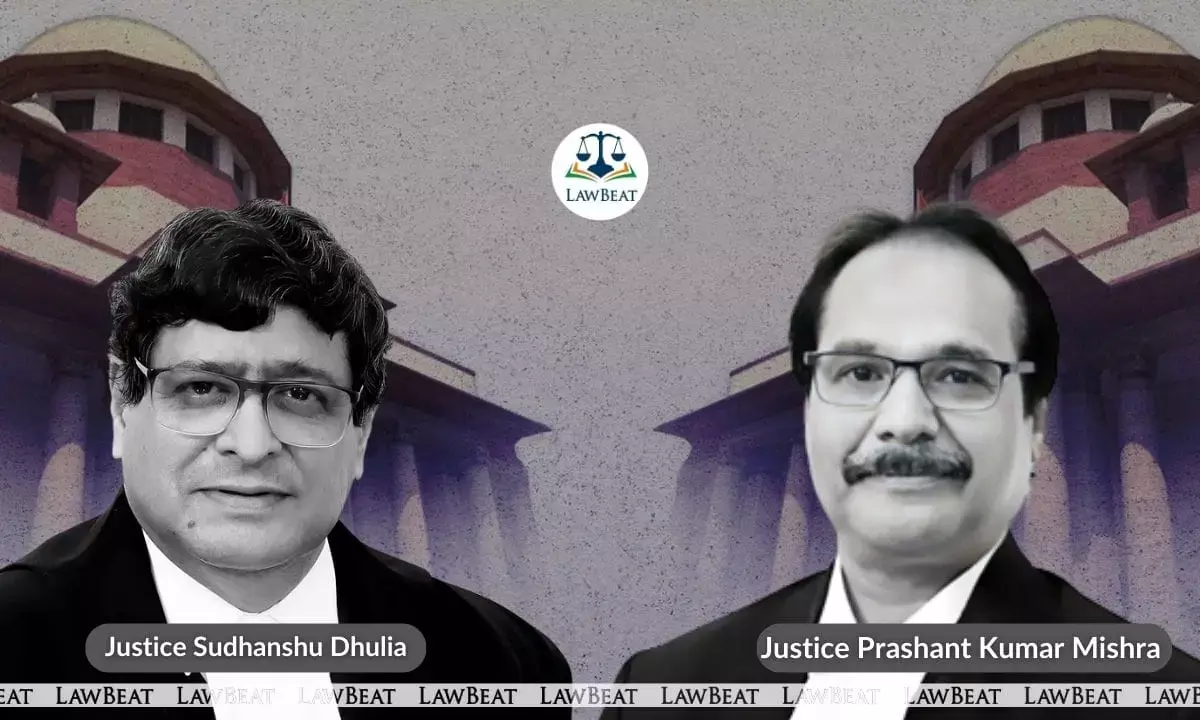Creating Fake Orders Of Court One Of Most Dreaded Acts Of Contempt: SC

The Supreme Court on May 2, 2025, declared that forging fake court orders constitutes one of the gravest forms of contempt, as it undermines the justice system and involves deliberate forgery.
A bench comprising Justices Sudhanshu Dhulia and Prashant Kumar Mishra upheld the Madras High Court’s finding of contempt against three individuals for fabricating a fake order in a property dispute. However, the bench reduced their sentence from six months’ imprisonment to one month’s simple jail term, considering the original punishment excessively harsh.
"We are of the view that present is a case where it is established beyond all reasonable doubt that the present appellants/contemnors have either used or created fake High Court interim orders. It is not a case of mere probability of commission of offence rather it is a proved case of commission of offence. Creating fake orders of the Court is one of the most dreaded acts of contempt of court. It not only thwarts the administration of justice, but it has inbuilt intention by committing forgery of record. Therefore, the charge of contempt is fully proved against the appellants beyond all reasonable doubt," the bench said.
The three appellants namely, Shanmugam alias Lakshminarayanan, M Muruganandam and S Amal Raj were convicted by the High Court for committing contempt of Court and sentenced to undergo simple imprisonment for a period of six months. The appellants have called in question the legality and validity of the judgment and order of the High Court.
The District Munsiff Court, Tiruchengode passed a decree in 2004 in favour of J K Rangammal Charitable Trust ordering recovery of possession and arrears of rent from the Contemnor Nos. 1 to 3. The contemnors preferred appeal suits which were dismissed.
The Decree Holder preferred Execution Petition and when the Court Amin went to execute the decree to effect delivery of possession on April 17, 2018 the Contemnor Nos. 1 to 3 produced interim orders passed by the High Court of Madras in staying the decree.
The Decree Holder applied and obtained the copies of the said orders produced by the Contemnors in Execution Petition and also entered caveat before the High Court.
On verification, it was found, the said orders produced before the Execution Court were fraudulently created by committing forgery and impersonation in the name of the Judge of the High Court of Madras.
The High Court recorded the finding of guilt against the appellants/contemnors on the basis of the report filed by CBCID and the affidavits filed by the appellants in response to the statutory notice issued against them.
Having deeply scrutinised the material, the bench added, "We are satisfied that the finding recorded by the High Court does not suffer from any illegality or perversity. The present is not a case where it is not known as to who produced the fake interim orders of the High Court or who prepared the same".
The court noted the chain of events emerging from April 18, 2018 onwards, when the fake orders were presented at the time when the bailiff tried to effect delivery of possession, have been found established.
"Nothing is more incumbent upon the courts of justice than to preserve their proceedings from being misrepresented, nor is there anything more pernicious when the order of the court is forged and produced to gain undue advantage," Court emphasized.
Case Title: Shanmugam @ Lakshminarayanan Vs High Court of Madras
